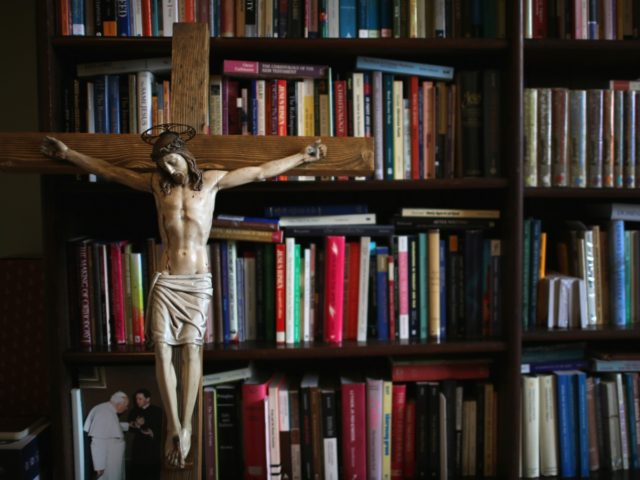The U.S. Supreme Court ruled Tuesday that states may provide tax credits to those donating to scholarship funds for religious schools.
The Court ruled, 5-4, in Espinoza v. Montana Department of Revenue, with the majority opinion delivered by Chief Justice John Roberts, in support of a Montana tax-credit scholarship program, in which donors of funds receive tax credits for their contributions to private scholarship organizations that provide funds toward religious school tuition.
Kendra Espinoza sought a parochial education for her daughters when her local public school proved detrimental.
The 2015 legislation by Montana lawmakers gave taxpayers a tax credit for contributions up to $150 to a student scholarship group that Espinoza could access to help pay for her daughters’ tuition.
Montana’s Department of Revenue, however, banned tax-credit scholarships from faith-based schools, claiming those schools were not a “qualified education provider.” Subsequently, the Montana Supreme Court struck down the tax-credit scholarship program, blocking Espinoza from receiving aid.
Tuesday’s ruling is being celebrated by advocates of school choice.
The Boston-based Pioneer Institute said the U.S. Supreme Court’s decision is one that strikes down “a bigoted state constitutional amendment.”
“Like Massachusetts, Montana is among nearly 40 states with so-called anti-aid amendments, which have roots in 19th century anti-Catholic, anti-immigrant discrimination,” Pioneer said in a press statement.
“The Espinoza family has been courageous in taking on its own government’s clear bias,” said Jamie Gass, director of Pioneer’s educational research and programming. “The coming generation of students in Montana and many other states will benefit greatly from that courage—and Kendra’s desire to do what is best for her children educationally.”
Andrea Picciotti-Bayer, legal advisor for The Catholic Association, said the U.S. Supreme Court’s ruling is “a welcome victory for religious freedom and countless American families.”
She added:
Born amid the ugly anti-Catholic bigotry of the 19th Century, the Blaine amendments became vehicles for state-sponsored discrimination against all religions over the course of the 20th and 21st Centuries. This decision blots out a great stain on our history and gives today’s low-income students a chance to attend religious schools of their choice using state-endorsed private school scholarship funds.
Family Research Council (FRC) also praised the Court’s decision.
Katherine Beck Johnson, FRC research fellow for legal and policy studies, said the Court “affirmed one of America’s first freedoms … the right of religious freedom.”
“Too often government rules discriminate against people of faith because of a misunderstanding about religious freedom,” she continued. “The practice of shutting people off from generally available public benefits simply because of their faith is harmful and dangerous. Montana’s Blaine Amendment, which denied school choice funds for families that wanted to send their children to religious schools, was religious discrimination, pure and simple.”

COMMENTS
Please let us know if you're having issues with commenting.